
Understanding the nuances behind healthcare logistics
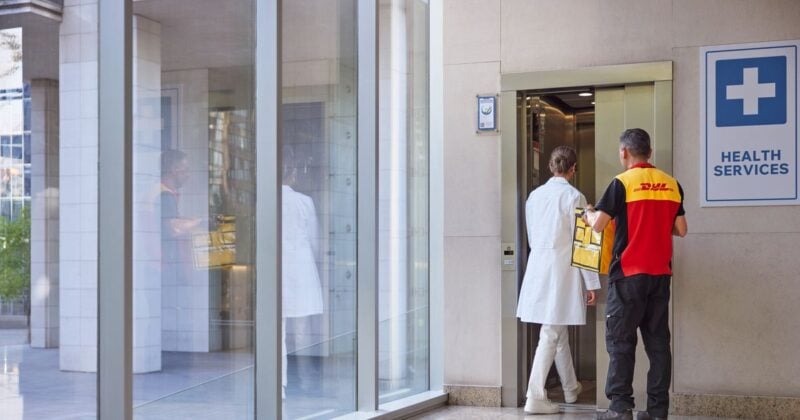
Precision, compliance, speed.
While these core tenets are industry-agnostic and apply to every supply chain, they are especially critical in the vastly complex healthcare supply chain.
Beyond usual business performance metrics, every step of the healthcare logistics journey—from preparation to delivery—directly impacts patient outcomes. Be it a single vial of a life-saving vaccine or an MRI machine, it carries the intangible weight of human health.
The enormity of healthcare logistics is further reflected in its economic footprint. Valued at US$88.04 billion in 2023, the sector is projected to expand exponentially to reach US$192.81 billion by 2032.
Healthcare constitutes a significant share of the global logistics market, and operates under its own pressures, regulations, and requirements.
Healthcare logistics is a different ball game from general logistics
Aside from the fact that healthcare logistics focuses on shipping medical supplies and equipment, a range of other factors differentiates it from general logistics.
The distinction lies in four critical areas: the nature of the product, the stringency of regulations, the centrality of the patient, and the specialization of the required infrastructure.
Product sensitivity and specificity
While logistics largely involves durable goods with long shelf lives, healthcare products are exceptionally sensitive and demand specific handling protocols.
Many pharmaceuticals, vaccines, and biologics become ineffective or dangerous if they deviate from their specified temperature ranges. This means they must be transported within a robust cold chain, where storage and distribution activities are strictly regulated with no interruption. These ranges can be ambient (15-25°C), refrigerated (2-8°C), frozen (-20°C), deep-frozen (-80°C), or even cryogenic (below -150°C).
The First Expired, First Out (FEFO) principle applies, ensuring products closest to their expiration date are used first to prevent waste and improper administration of ineffective medication.
Many medical products are also physically fragile, with delicate laboratory equipment, sensitive diagnostic samples, and glass vials requiring specialized packaging and handling to prevent breakage and contamination.
There is also the issue of high-value pharmaceuticals, which tend to be targets for theft and counterfeiting. Healthcare logistics providers need to provide secure transport, access-controlled facilities, and verified personnel to protect product integrity.
Regulatory rigor and compliance
In addition to product sensitivity, healthcare logistics adhere to a different set of regulations. Apart from the standard logistics laws, healthcare logistics are also subject to regulations that are imposed in the broader healthcare industry.
Levied by regulatory bodies such as the U.S. Food and Drug Administration (FDA) and the European Medicines Agency (EMA), these regulations include Good Distribution Practices (GDP) and Good Storage Practices (GSP), both of which govern handling, storage, and transportation.
Furthermore, regulators are increasingly clamping down on counterfeits and enabling swift recalls, and have begun mandating unique identifiers and lot tracking for pharmaceutical products. Every step of the healthcare logistics journey needs to be meticulously documented and audited, encompassing temperature logs, handling records, and chain-of-custody documents.
Patient-centricity and urgency
While general logistics deal with regular retail customers, healthcare logistics are connected to patients. This direct-to-patient (DTP) model, part of Direct to X services for healthcare as offered by providers like DHL, requires discretion, specialized handling, and precise coordination.
If a shipment of surgical supplies is delayed, it has more serious consequences in healthcare logistics, such as a critical operation being postponed. And if a vaccine shipment is compromised, you’re looking at a potential public health crisis. Every minute counts, especially in high-risk cases like emergency deliveries of blood plasma to a trauma center, just-in-time (JIT) delivery of custom surgical kits, or the rapid transport of a donor organ.
Specialized infrastructure and personnel
Finally, warehouses for healthcare logistics must be temperature-mapped to maintain consistent conditions. It also requires validated clean rooms, refrigerated and frozen zones, and secure vaults for controlled substances.
These warehouses must be further outfitted with equipment specifically designed to handle healthcare supplies. Refrigerated vehicles and real-time monitoring devices aside, the shipment also requires validated, temperature-controlled packaging. Such packaging systems can be active with power or passive with insulating materials.
Tying everything together are skilled personnel who are extensively trained in GDP, product-specific handling requirements, and regulatory compliance to ensure smooth operations overall.
DHL Global Forwarding Adds to Its Asia Pacific’s Life Science and Healthcare Capabilities with Dual-Certified Cold Chain Facility in Malaysia
DHL Global Forwarding Adds to Its Asia Pacific’s Life Science and Healthcare Capabilities with Dual-Certified Cold Chain Facility in Malaysia
To meet the growing demand for temperature-sensitive pharmaceutical logistics, DHL Global Forwarding (DHL) continues to enhance its cold chain capabilities in Malaysia, being the first forwarder to offer a cold chain facility certified for both 15–25°C and 2–8°C storage within the Kuala Lumpur International Airport (KLIA) Free Commercial Zone.
“Malaysia is strategically located to serve as a regional hub for global medical technology companies, and the fast-growing market is expected to increase at a CAGR of 8.5 per cent from 2023 to 2028, reaching a market volume of US$4.5 billion by 2028,” said Praveen Gregory, Managing Director, Singapore, Malaysia and Brunei, DHL Global Forwarding. “Our cold chain infrastructure in KLIA has consistently delivered high standards in pharmaceutical logistics since its launch in 2023, and as demand across Asia Pacific accelerates, we are ready to lead with best-in-class facilities and expertise to support our customers.”
DHL is also the only forwarder in KLIA offering reefer truck transfers from pick-up to terminal arrival and delivery. This service ensures cold chain integrity is maintained throughout the journey and minimizes third-party handling, which in turn reduces turnaround time. It also enhances cargo security and ensures compliance with Good Distribution Practice (GDP) standards.
To ensure all shipments are handled with utmost care and in compliance with the highest industry standards, all cold-chain shipments are handled by a dedicated team of Life Sciences Specialists who have completed the training and are certified. These staff undergo annual training to stay ahead of evolving industry requirements, armed with vital tools and knowledge needed to understand and meet both customer and regulatory expectations.
Anticipating the burgeoning stakes in healthcare logistics
With so many components that need to be precisely balanced, it can be tricky to build and manage a healthy healthcare supply chain. However, the payoff is significant: the overall supply chain becomes reliable and secure, serving as a cornerstone of a healthcare company’s reputation among providers and patients.
This can be achieved by partnering with a specialized logistics provider like DHL. With validated infrastructure, dedicated personnel, technological platforms, and global regulatory knowledge at our disposal, the logistics firm is adept at navigating the complex landscape of healthcare logistics.
As complex as it is now, healthcare logistics will only continue to evolve well into the future. Some of these evolutions are well underway, with the rising demand for personalized medicine, cell and gene therapies, and globalized clinical trials calling for major changes in the field.
The need for innovative, compliant, and patient-focused logistics solutions has never been greater. Excellence in this field is not just a competitive advantage; it is a fundamental pillar of modern global healthcare.
ALSO WORTH READING

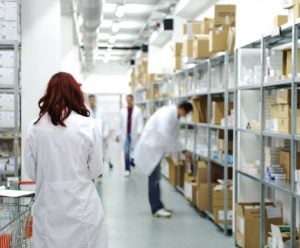





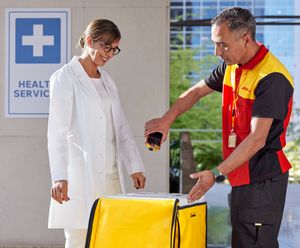

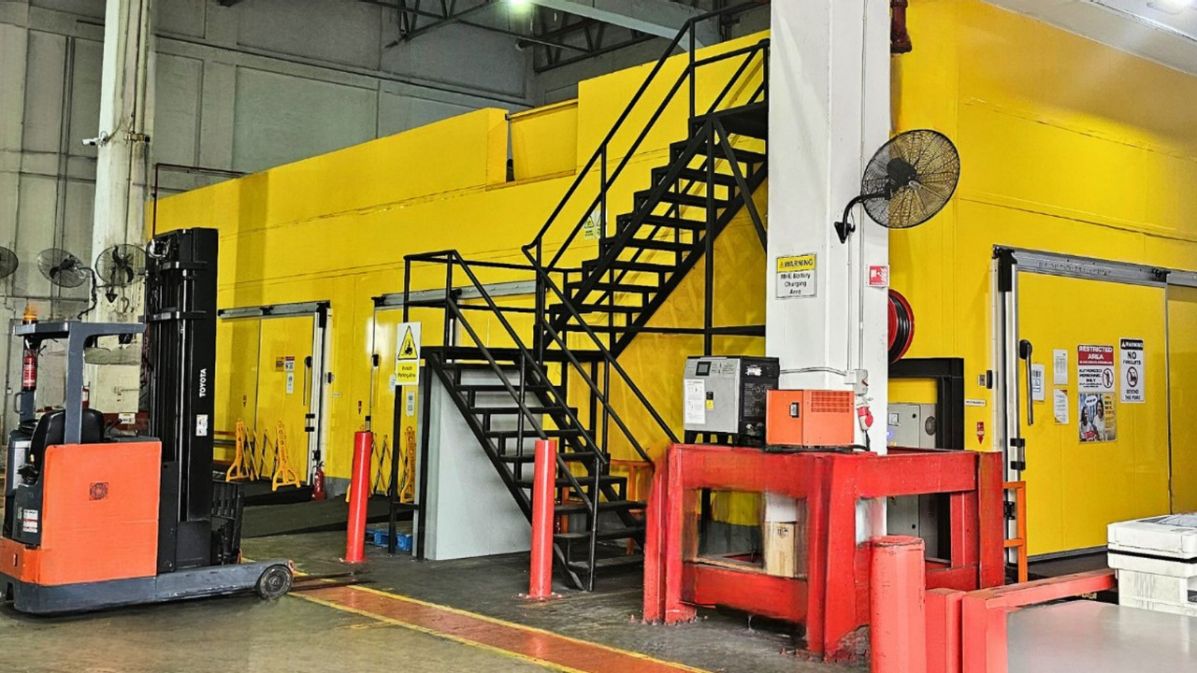
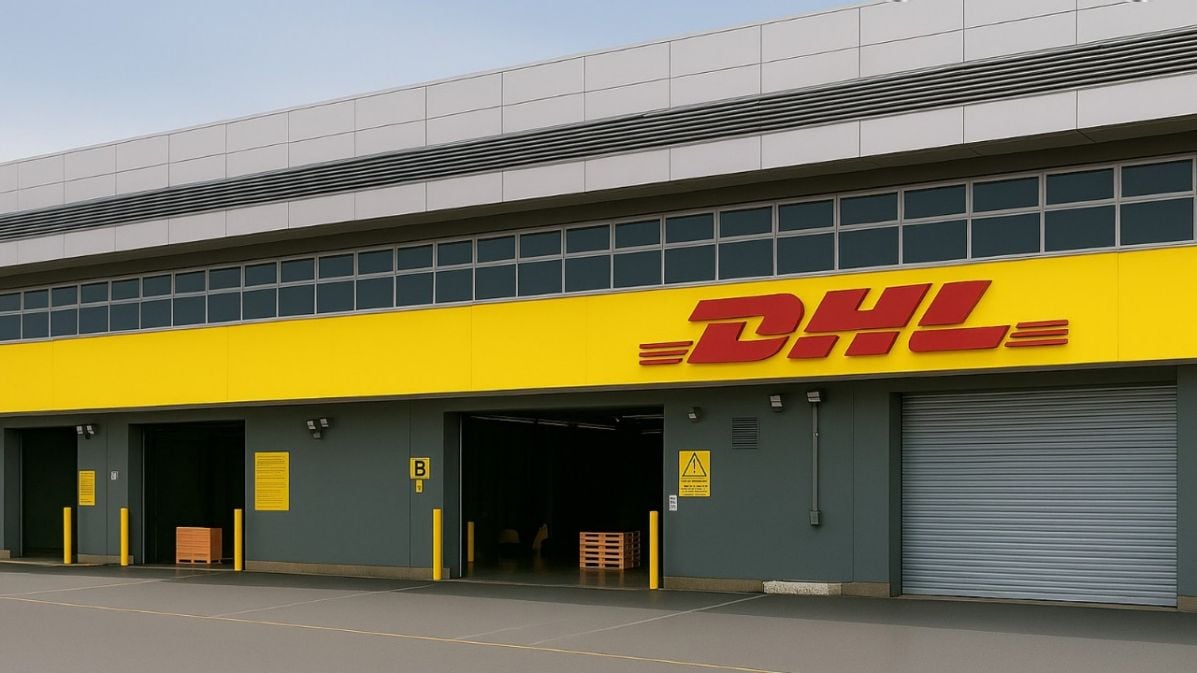





 English
English